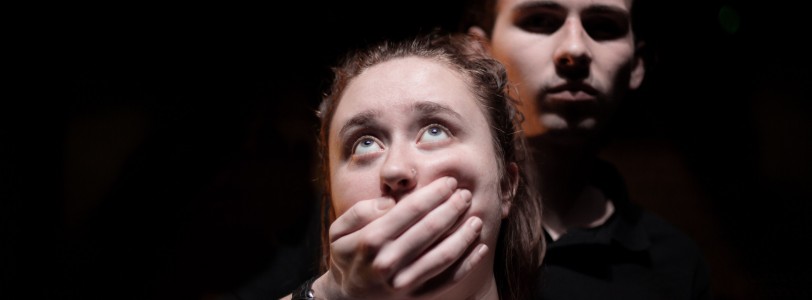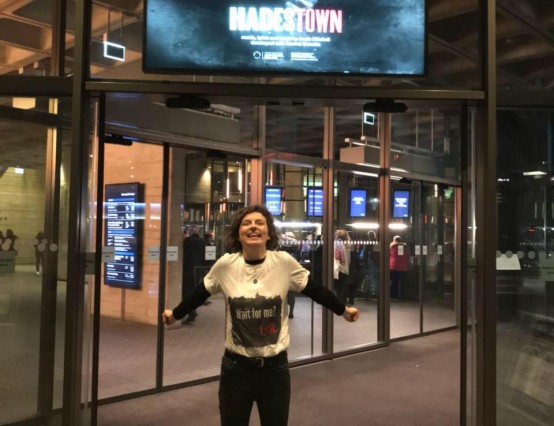I love Shakespeare, however, combining this with my embedded feminist beliefs has always been a challenge, and The Taming of the Shrew is perhaps the biggest piece of Shakespearean Lego to tread my feminist foot on. My relationship with this play has had more tosses and turns than a raunchy scene in a City Comedy, I hate it, I love it and I hate myself for loving it. All my social media handles are a play on the play’s title, and I have a literal Shrew tattooed on my leg in ode to my love of the Bard himself.
This is what makes chatting to Emma Heron so interesting. She is the artistic director of Mrs Pankhurst’s Players, who with Shrew are hitting the Edinburgh Fringe this year with their adaptation of the Shakespearean spin on the classic, problematic tale. However, expect no slapstick or rude jokes as Heron explores the less funny side of what is an uncomfortable play.
'I worked on it during my master’s 15 years ago and one of the things I talked about with theatre makers at the time is can a woman work and direct this play when it is so explicitly misogynistic,' Heron explains to me while discussing how Shrew was born. A lot of people respond to their discomfort of the play by just not putting it on, resulting in many a Taming drought. But despite her reservations about the play Heron believes that 'rather than saying it should never be done, we should tackle the material. This is women’s experience and we should take those experiences seriously.'
Audience’s reaction to the both the original and Heron’s text was something of interest during our chat, as it appears that many people (me included) struggle to deal with the brutal reality of the text.
'We kept getting the response- 'I love this play, I thought it was a nice play,' but when you look at the text, how can you think that!'
Heron tells me of a fascinating if not disturbing event whilst they were flyering for the show. 'Yesterday we had the actor who plays Baptista walking round Edinburgh trying to sell his daughter to passers-by. He was with a female actor from the company. She had paper tape over her mouth face with the hashtag #itsnotfunny on it and she was carrying a sign ‘daughter for sale, 20,000 crowns’. There were people who were still finding it funny.'
I begin to wonder if Shakespeare’s almost mythic status permits a degree of slack, which has allowed The Taming of the Shrew to survive and be loved for so many years.
'Yes absolutely, and that’s something I wanted to confront.'
Shrew had its first scratch performance on International Women’s Day, the same day the RSC debuted their gender swapped Taming. 'It’s still comedy and all very funny, slapstick,' Heron explains, 'And that’s interesting but doesn’t deal with the controversy because it’s still a play that depicts an abusive situation.'
Shrew most definitely is not slapstick, and both Heron and Mrs Pankhurst’ Players focus on the physical and sexual abuse that, although not directly actioned on stage, are still very much present. Heron encourages us to look at the words rather than the physical actions of Taming.
'When you look at the text itself, he refers to her being beaten, starved and kept awake for days. These are the things that are being done to her. Petruchio lays this out as his taming strategy, saying that this is what he is going to do to her. We even see it happening in Act 4 when he refuses her food and clothing, and is violent to the servants.'
Another change to the original text is a focus on human trafficking. 'This is happening now. Women are trafficked and exchanged in transactions; this happens. People today are sold and are being trafficked and abused.' Heron continues, 'we should recognise the play for what is it- a desperate tragedy of a woman who is abused and trapped in a desperate situation.'
We end the call on a slighter happier question, injecting some much needed optimism: how can women’s representation on stage be improved?
‘The problem is that male stories are still viewed as universal in a way that women’s stories aren’t and that’s the barrier we have to get through. Hamlet is considered a great universal story but is only 'universal 'to 50% of the population.’
Here Heron focuses on the importance of women supporting other women, using the fantastic company she is a part of Mrs Pankhurst’s Players as a crucial example. 'All leadership roles are given to young women.' Heron goes on to further emphasise the importance that a support group has on female confidence 'It’s about sticking to our guns and saying “these are the stories we want to tell.” Being able to say, “I want to take this popular play by our National Playwright and do it as a drama and not a comedy” and sometimes that's difficult if you’re working in isolation which is where women’s groups are key.'
We finish the call soon after this but not before I express my bitter disappointment at missing the show. Shrew is an uncomfortable take of Shakespeare’s farcical fiasco yes but an essential one that forces Shakespeare lovers like myself to look a little deeper beneath the wondrous war of words between Katherine and Petruchio.
Shrew is playing at the SpaceTriplex Theatre till 24th August details for tickets can be found here.
- Twitter: @pankhurstplayers
- Instagram:@pankhurstplayers
- FB: Mrs Pankhurst’s Players







0 Comments